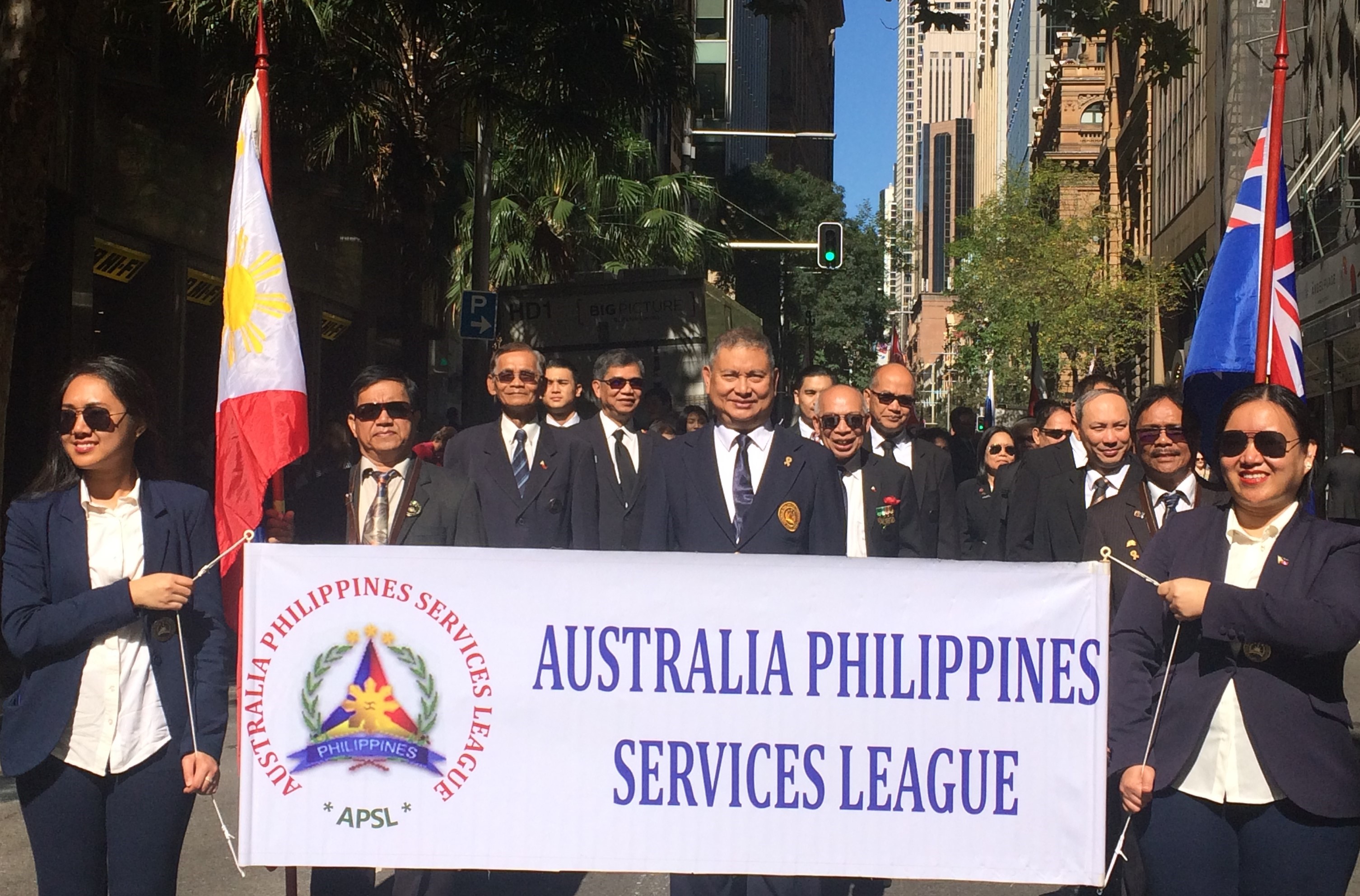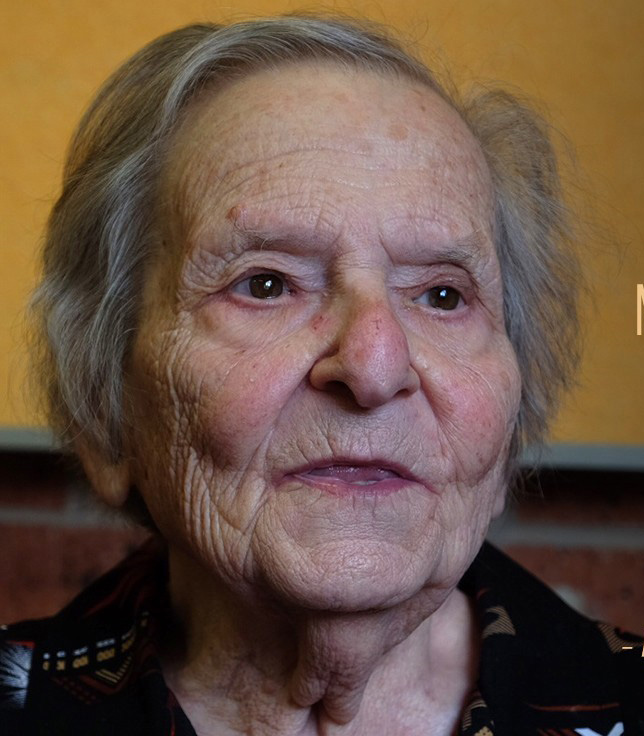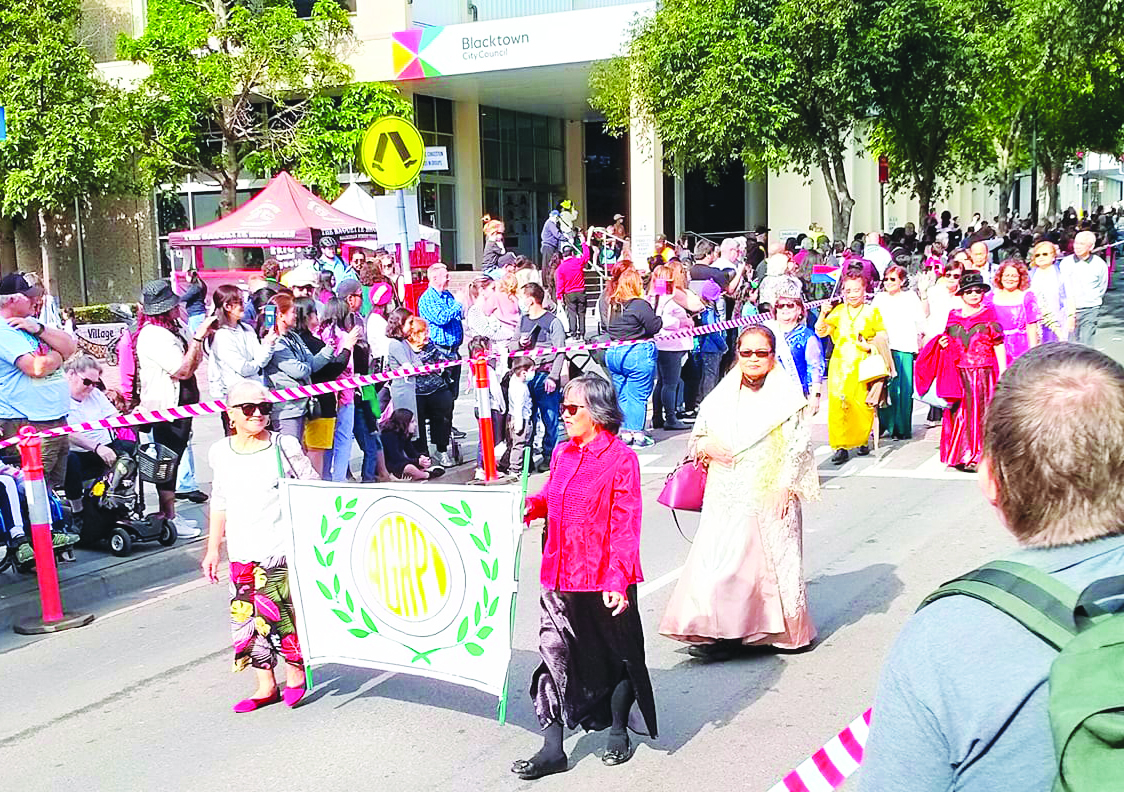BY EVELYN OPILAS
The cancellation of the ANZAC Day March in Sydney 25 April due to Covid-19 made the event more poignant for the Australia Philippines Services League (APSL) as it saluted the Filipino soldiers who fought and died in World War I and who might also have caught the Spanish ‘flu’.
PHOTO – APSL during 2019 ANZAC Day March
“The Spanish ‘flu’ pandemic almost a hundred years ago seems to be an eerie coincidence as we face the Covid-19 pandemic in 2020, affecting our usual commemorative services at this time,” said APSL president Col Chris Pilao (Ret).
“… They were advised not to shake hands with others, to stay indoors, to avoid touching library books and to wear masks. Schools and theaters closed…” said website livescience.com on instructions to Americans at the time.
At the time, too, the Philippines was a territory of the Unites States of America, the US having won the Spanish-American War in 1898, resulting in the Philippines, then a colony of Spain, to be ceded to America under the Treaty of Paris.
When America became involved in WWI, males from the Philippines working “as sakadas (contract workers) in the Hawaiian sugar, pineapple plantations and other industries were … required to register in the U.S. military drafts of June 5, 1917, June 5, 1918 and September 12, 1918,” said website filipinos-ww1usmilitaryservice.tripod.com.
“While some volunteered, others were drafted, most of them serving in Schofield Barracks, Ft. Shafter and Hawaiian National Guards from the ranks of Privates to 1st Sergeants. They worked as cooks, musicians, mechanics… Almost 4,000 Pilipino soldiers had served in the Hawaiian Infantry. Pilipinos residing in other parts of the United States also volunteered or were drafted in the military.
“Meanwhile, Pilipino soldiers from the Philippines were sent to the European war theatres by the U.S. Armed Forces. In 1918, Tomas Mateo Claudio, Cpl USMC AEF, and a Morong, Rizal native, died in Chateau Thierry, France in the Battle of Belleau Wood, that became legendary, not only for the heavy number of casualties, but also for the Marines’ courage under fire,” the website added.
In a letter to Hawaii Governor Linda Lingle dated 26 May 2008, researcher Ms Maria Elizabeth Embry found that “109 veterans were discharged with military service connected disability (SCD) of varying degrees, some of these could be related to the effects of the devastating worldwide late-1918 to early-1919 flu epidemic that had claimed 550,000 American lives in comparison to the 50,000 lives lost during WWI.”
Although called ‘Spanish flu’, the fast-spreading virus did not come from Spain but from China through Chinese labourers needed by European farms during WWI, according to livescience.com.
National Geographic online also noted that “Historian Mark Humphries of Canada’s Memorial University of Newfoundland says that newly unearthed records confirm that one of the side stories of the war—the mobilization of 96,000 Chinese laborers to work behind the British and French lines on World War I’s Western Front—may have been the source of the pandemic.”
Fast forward to 2020, the Department of Health has advised Australians that Covid-19, a respiratory illness caused by a new virus, “spread from person to person, but good hygiene can prevent infection…”
The virus seems to have been spread by infected Chinese individuals travelling from Wuhan, Hubei province in China to other parts of the world, including Australia.
As ANZAC Day honours the young men who went to war in WWI, it also serves as a reminder on how many among them died, not from battle wounds but from the virus, Spanish ‘flu’.
ANZAC is the acronym formed from the initial letters of the Australia and New Zealand Army Corps, which landed on the Gallipoli peninsula, Turkey in April 1915.
In 2020, Covid-19 has suspended/ shut down/ stopped most activities in the social, economic, educational, religious, political spheres in Australia, including the ANZAC Day March in which the APSL had participated for almost 20 years in Sydney. People have been ‘confined to quarters’, in lockdown, only allowed to undertake ‘essential’ activities.
Covid-19 has also claimed the lives of many frontline ‘soldiers’ – doctors, nurses, health care workers – modern-day heroes who have been infected with the virus in the course of their duties, and who have sacrificed their lives in the service of others, much like the fallen troops in WWI.
May their valor be remembered too with gratitude, fortitude, hope – as well as that of the citizens who followed the rules so that other frontliners may be safe without them about.




![Photo3-Catafalque party Unknown Soldier AWM[13606]](http://bayanihannews.com.au/wp-content/uploads/2020/04/Photo3-Catafalque-party-Unknown-Soldier-AWM13606-300x160.png)






Leave a Reply